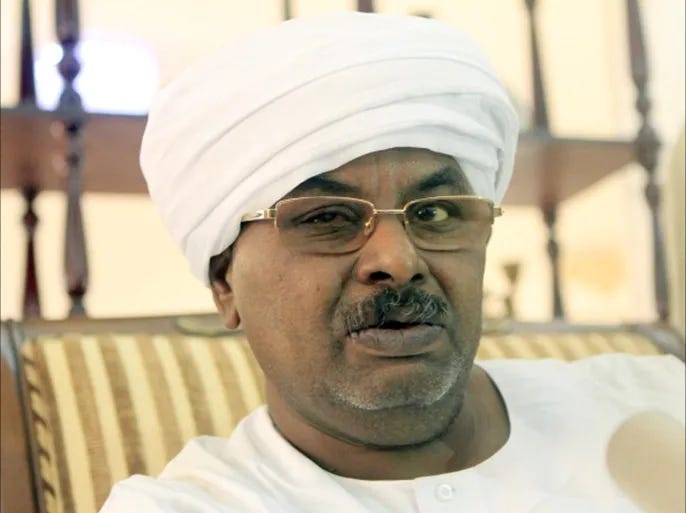European Union sanctions Sudanese intel chiefs
Top RSF commander and governor also targeted
The Council of the European Union announced “restrictive measures” against four Sudanese individuals, including the notorious former spy chief, Salah Gosh, and the current head of military intelligence, Lt-Gen. Mohamed Ali Ahmed Subir.
The sanctions are largely symbolic but reflect an effort by the European Union to curb the violence in Sudan by pressuring key leaders on both sides of the conflict. The four sanctioned individuals are subject to an asset freeze and travel ban, and European citizens and companies are forbidden from transacting any business with them.
In a decision Monday, the Council said that Subir “holds command responsibility in the harassment, arbitrary arrest and detention of: human rights defenders; local community activists, including anti-war activists; lawyers; medical professionals; volunteers supporting emergency services; members of political parties and of resistance committees; and people perceived as supporters of the Rapid Support Forces (RSF).” His officers have also been involved in cases of sexual violence, torture, and the imposition of restrictions on humanitarian aid organizations.
The second sanctioned individual, Salah Gosh, is the former director of the National Intelligence and Security Service (NISS). The EU Council said he “is considered to be a leader among the hardline elements of the former Al-Bashir regime… embedded in the structures of the SAF [Sudanese Armed Forces].”
He undermined the civilian transition in Sudan before the outbreak of the war and he used his influence to promote the revival of Sudan’s internal security service, including its paramilitary wing, the Operations Department. This was dissolved during the 2019-2021 civilian transition but was reconstituted either shortly before or after the outbreak of the current war in April 2023.
The United States already sanctioned Gosh last year, saying that he was “a leader among the elements of the defunct al-Bashir regime responsible for security and military-related efforts.”
Though he holds no formal position, Gosh is still popular and well-connected within the NISS (also called the General Intelligence Service), within influential Islamist political circles, and the military.
Gosh played a key role in the ouster of President Omar al-Bashir in 2019, when military and security bosses concluded that the president had lost control of mass protests in the capital, and his time had come. He joined the transitional military council but resigned under immense public pressure days later. He went into exile in Egypt, where he is well-placed to serve as a liaison between the Sudanese and Egyptian security services.
On the RSF side, the EU imposed sanctions on Osman Mohamed Hamid, a major general nicknamed “Osman Operations.” The EU Council said he was responsible for violations of international human rights law and humanitarian law.
He holds command responsibility for “large-scale attacks based on intersecting ethnicity and gender grounds, killings, torture, widespread sexual and gender-based violence, rape, sexual slavery, abduction, the recruitment and use of children in hostilities, and the obstruction of access to humanitarian aid for civilians in need,” the Council wrote in an annex to its decision, which was published in the Official Journal of the European Union.
Lastly, the Council sanctioned Tijani Karshom, the de facto Governor of West Darfur, saying that he “has facilitated the recruitment of militias to fight along the RSF and is involved in planning, directing and committing serious human rights abuses and violations of international humanitarian law in West Darfur.”
In a press release, the Council said, “The imposition of these restrictive measures underlines EU’s unwavering support for peace and accountability in Sudan. The EU reaffirms its steadfast support and solidarity with the Sudanese people and its commitment to working with regional and international partners to facilitate a peaceful resolution to the crisis and to address the dire humanitarian situation.”



